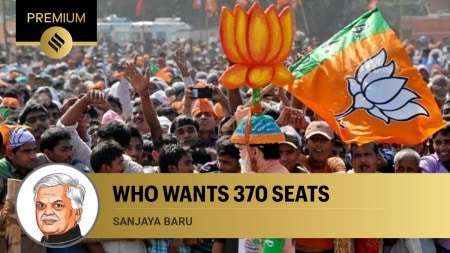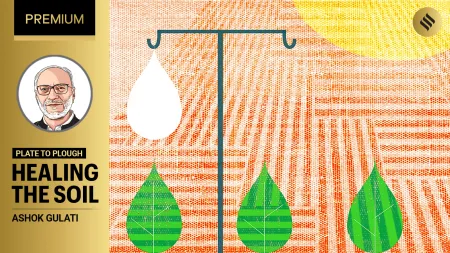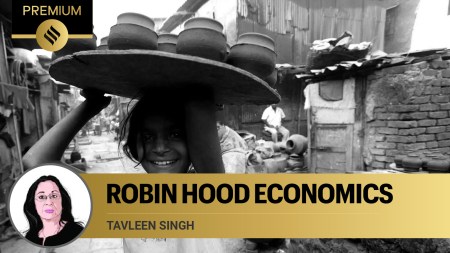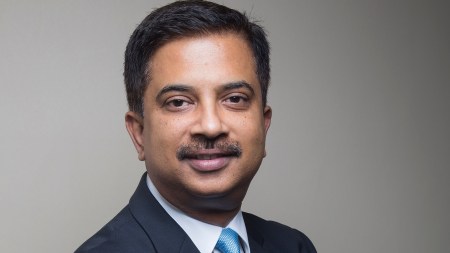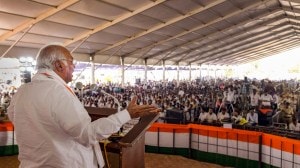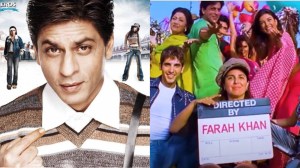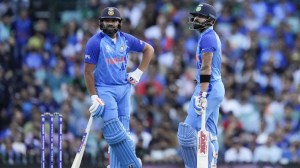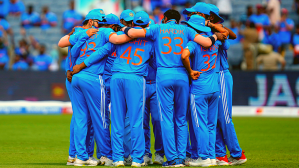- India
- International
4 key shifts in India’s Middle East diplomacy: What response to Iran-Israel crisis shows
India’s quick call for de-escalation, in the aftermath of Iran’s retaliatory strike against Israel, stands in contrast to Delhi’s instant expression of solidarity with Tel Aviv at the highest political level immediately after the October 7 terror attack by Hamas.
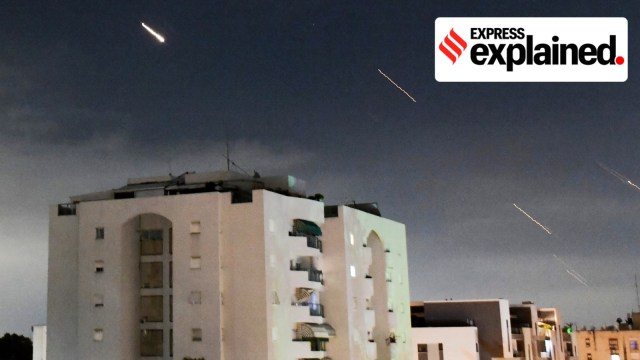 Iran launched missiles and drone attacks against Israel in a retaliatory strike on April 14. (Via AP/PTI)
Iran launched missiles and drone attacks against Israel in a retaliatory strike on April 14. (Via AP/PTI)The Middle East is one of the most successful regions for Indian diplomacy over the last decade but it continues to test Delhi’s ability to navigate the region’s competing imperatives.
India’s quick call for de-escalation today in the aftermath of Iran’s retaliatory strike against Israel stands in contrast to Delhi’s instant expression of solidarity with Tel Aviv at the highest political level immediately after the October 7 terror attack by Hamas.
That contrast highlights four broad transitions in India’s engagement with the region.
First, the call for regional restraint underlines the difference between responding to the brutality of a non-state actor’s terrorism and a conflict between two major state actors locked in a long-standing regional rivalry. Delhi’s stakes in the bilateral relationships with both Tehran and Tel Aviv are huge and it has never been a question of choosing between them.
With Iran making clear that its retaliation against the Israeli attack on its embassy in Damascus is now complete, India will hope that Tel Aviv will avoid new military actions that will trigger a dangerous and wider war in the region. If India was seen as taking “Israel’s side” on October 7, its position today urging restraint will be viewed as “balanced” and in favour of regional peace.

Second, India’s call for de-escalation between Israel and Iran is about recognising the complexity of the region’s politics. In the past, India’s regional policy was framed in terms of contradictions between the West and the Middle East. Today, Delhi pays attention to the region’s internal contradictions.
Inter-state and intra-state conflicts in the Middle East are deep and pervasive, and India will have to forever balance its engagement with key regional actors — Egypt, Iran, Israel, Qatar, Turkey, Saudi Arabia, and the United Arab Emirates — whose orientation and interests are different and often in conflict.
Third, India’s call for de-escalation also underlines that religion can’t be the dominant factor in dealing with the Middle East. In the past, Congress governments were accused of being driven by Muslim vote bank politics. Ironically, the NDA government’s warmth to Israel has also been viewed through the religious lens.
Many on the right today assume that India’s support for Israel is automatic in any situation; this is the mirror image of the left’s past position that assumed India’s regional policy is by default anti-Israel. The NDA government is signalling that its approach is not ideologically pre-determined, but based on the merits of the issue at hand.
Fourth, the non-ideological engagement with the region is a necessary complement to India’s expanding interests in the Middle East. India’s interests in the region are no longer limited to oil imports and labour exports. The Gulf Arab states — especially Saudi Arabia and the United Arab Emirates — have emerged as major economic and political partners for India.
The Gulf Arab partnerships transcend the bilateral and have acquired a regional character in the wider Indian Ocean littoral. They are also critical in the realisation of the India Middle East Europe Corridor (IMEC), which today is at the top of India’s trans-regional agenda.
On its part, Iran has long been vital in shaping India’s relations with Afghanistan, Pakistan and Central Asia.
The Middle East is a demanding region and dealing with it is not for the simple-minded or the faint-hearted. As a large neighbour with growing stakes in the Middle East, Delhi is fast learning to navigate the region’s unending conflict.
C. Raja Mohan is a Contributing Editor for The Indian Express and a visiting professor at the Institute of South Asian Studies, National University of Singapore
More Explained
EXPRESS OPINION
Apr 30: Latest News
- 01
- 02
- 03
- 04
- 05


